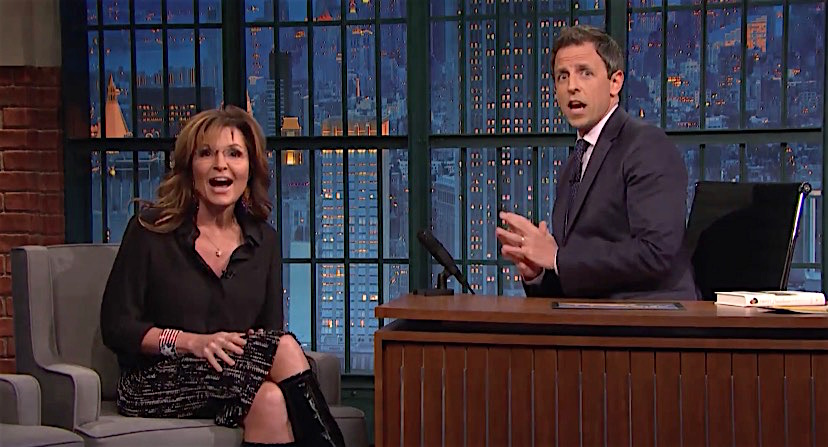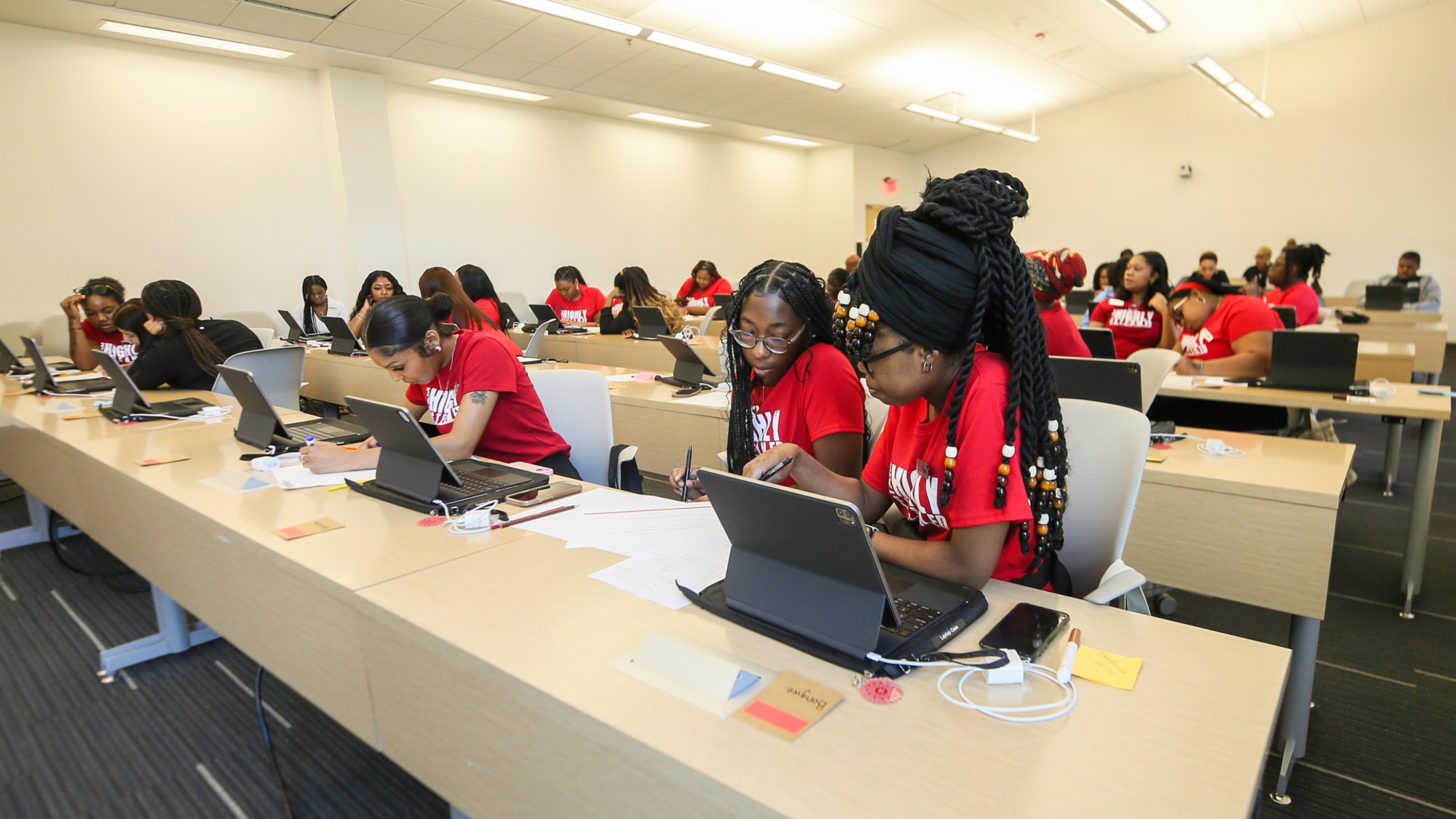Sarah Palin and Seth Meyers show America how to have a polite, rational argument over Syrian refugees


On Monday's Late Night, Seth Meyers asked Sarah Palin, as a former governor, what she thinks about the governors refusing to accept Syrian refugees into their states, and he started with a loaded question: "Do you think this might look like this is a decision being made out of fear, and isn't there something to be said for having the moral courage to welcome in people who are in danger and in fear and need a safe place to go?" At this point, things could have gotten ugly, or at least uncomfortable, but Palin and Meyers basically had the polite, interesting version of the argument many families will have over Thanksgiving dinner on Thursday.
Palin responded that the message from more than half the U.S. governors "is not that we don't want Syrian refugees, their message is: What is the vetting process? How do we know that these are the innocents who are coming over and actually needing aid, and they're not the bad guys infiltrating under the guise of refugees?" She went on to argue that America doesn't have a vetting process at the federal level, and when Meyers responded that yes, there is a long vetting process involving many federal agencies and the United Nations, then things finally got interesting.
At the end of the short discussion, Meyers and Palin are actually agreeing about the root of the Syrian refugee fight, the goals of most of the refugees, and the need to balance security and freedom. They almost certainly didn't persuade each other to switch positions in the argument, but the viewer can see the valid points each side is making, which counts as a sadly impressive achievement amid the increasingly polarized debate playing out on America's public stage. No matter where you fall in the argument, take notes, and maybe we can all all get through Thanksgiving without wine being thrown or Aunt Rita leaving the table in angry tears. Peter Weber
The Week
Escape your echo chamber. Get the facts behind the news, plus analysis from multiple perspectives.

Sign up for The Week's Free Newsletters
From our morning news briefing to a weekly Good News Newsletter, get the best of The Week delivered directly to your inbox.
From our morning news briefing to a weekly Good News Newsletter, get the best of The Week delivered directly to your inbox.
A free daily email with the biggest news stories of the day – and the best features from TheWeek.com
Peter has worked as a news and culture writer and editor at The Week since the site's launch in 2008. He covers politics, world affairs, religion and cultural currents. His journalism career began as a copy editor at a financial newswire and has included editorial positions at The New York Times Magazine, Facts on File, and Oregon State University.
-
 Breaking news: the rise of ‘smash hit’ rage rooms
Breaking news: the rise of ‘smash hit’ rage roomsUnder the Radar Paying to vent your anger on furniture is all the rage but experts are sceptical
-
 Did markets’ ‘Sell America’ trade force Trump to TACO on Greenland?
Did markets’ ‘Sell America’ trade force Trump to TACO on Greenland?Today’s Big Question Investors navigate a suddenly uncertain global economy
-
 ‘We know how to make our educational system world-class again’
‘We know how to make our educational system world-class again’Instant Opinion Opinion, comment and editorials of the day
-
 ‘One Battle After Another’ wins Critics Choice honors
‘One Battle After Another’ wins Critics Choice honorsSpeed Read Paul Thomas Anderson’s latest film, which stars Leonardo DiCaprio, won best picture at the 31st Critics Choice Awards
-
 A peek inside Europe’s luxury new sleeper bus
A peek inside Europe’s luxury new sleeper busThe Week Recommends Overnight service with stops across Switzerland and the Netherlands promises a comfortable no-fly adventure
-
 Son arrested over killing of Rob and Michele Reiner
Son arrested over killing of Rob and Michele ReinerSpeed Read Nick, the 32-year-old son of Hollywood director Rob Reiner, has been booked for the murder of his parents
-
 Rob Reiner, wife dead in ‘apparent homicide’
Rob Reiner, wife dead in ‘apparent homicide’speed read The Reiners, found in their Los Angeles home, ‘had injuries consistent with being stabbed’
-
 Hungary’s Krasznahorkai wins Nobel for literature
Hungary’s Krasznahorkai wins Nobel for literatureSpeed Read László Krasznahorkai is the author of acclaimed novels like ‘The Melancholy of Resistance’ and ‘Satantango’
-
 Primatologist Jane Goodall dies at 91
Primatologist Jane Goodall dies at 91Speed Read She rose to fame following her groundbreaking field research with chimpanzees
-
 Florida erases rainbow crosswalk at Pulse nightclub
Florida erases rainbow crosswalk at Pulse nightclubSpeed Read The colorful crosswalk was outside the former LGBTQ nightclub where 49 people were killed in a 2016 shooting
-
 Trump says Smithsonian too focused on slavery's ills
Trump says Smithsonian too focused on slavery's illsSpeed Read The president would prefer the museum to highlight 'success,' 'brightness' and 'the future'
